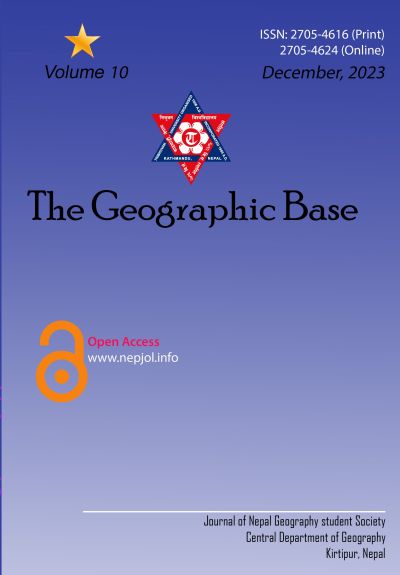Examining the Environmental Sustainability of Tourism Enterprises in Lakeside, Pokhara
DOI:
https://doi.org/10.3126/tgb.v10i01.71833Keywords:
Sustainable tourism, Environmental economic geography, Stakeholder theory, Resource consumption, Waste managementAbstract
This research investigated the relationship between environmental contexts and tourism businesses in Lakeside, Pokhara, Nepal, from the perspectives of stakeholder theory and environmental and economic geography. Data from 150 tourism enterprises were analyzed using confirmatory factor analysis, Spearman correlation, Kruskal-Wallis test, and probit regression. The study revealed complex patterns in resource consumption, waste management choices, adoption of environmental laws, stakeholder involvement, and disaster preparedness. Larger enterprises consumed more resources, while hotels favored hybrid energy sources. Educated managers favored municipal waste collection, whereas those aware of Sustainable consumption and production often sold waste to private collectors. Newer establishments were more likely to adhere to local ecological laws. The research emphasizes the need for collaborative approaches, proactive disaster planning, and interventions to bridge the gap between awareness and action for a sustainable and resilient tourism industry. Future research should focus on identifying barriers to sustainable practices and the impact of ecological laws on older tourism enterprises.
Downloads
Downloads
Published
How to Cite
Issue
Section
License
© Nepal Geography Student Society




